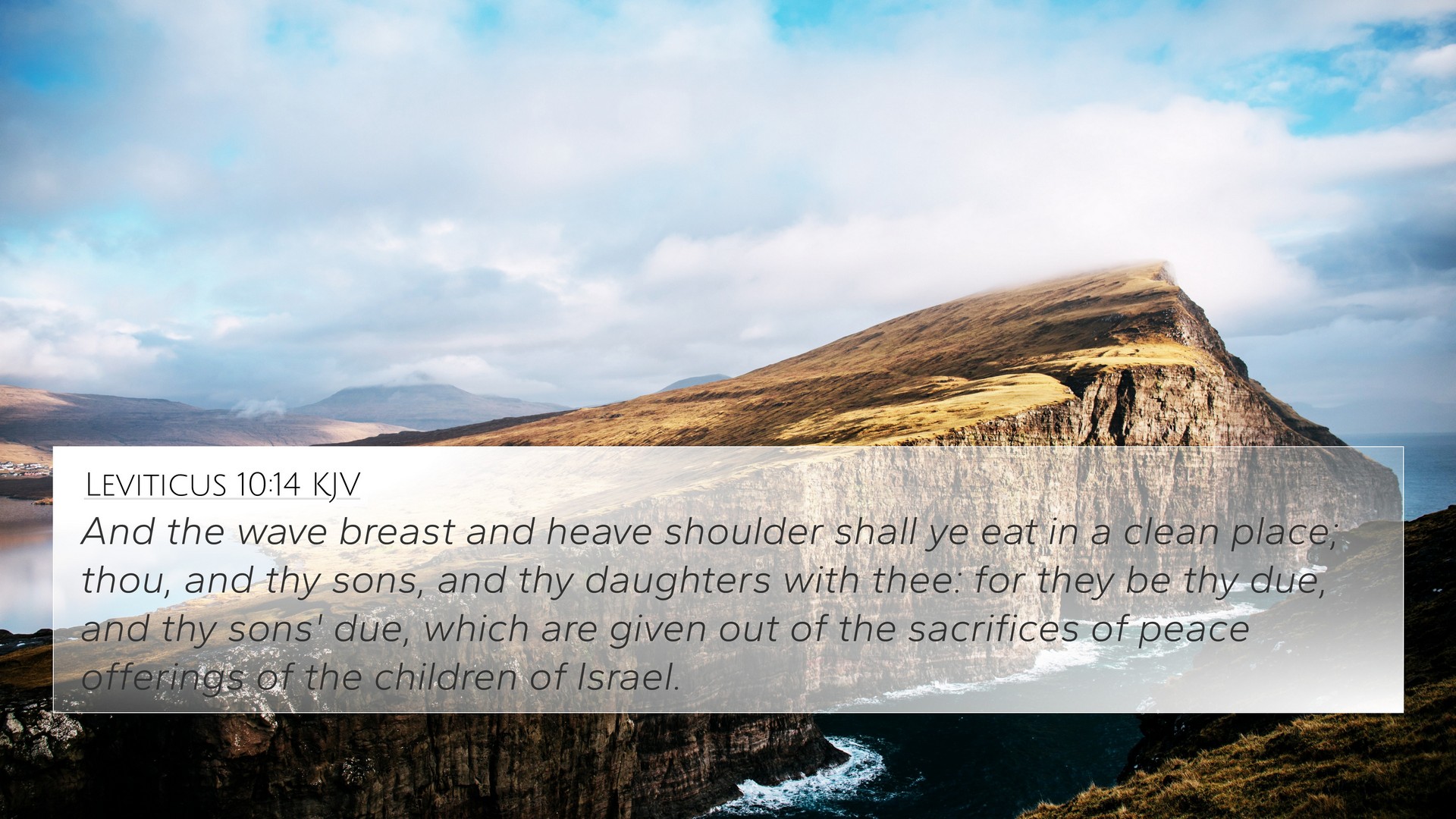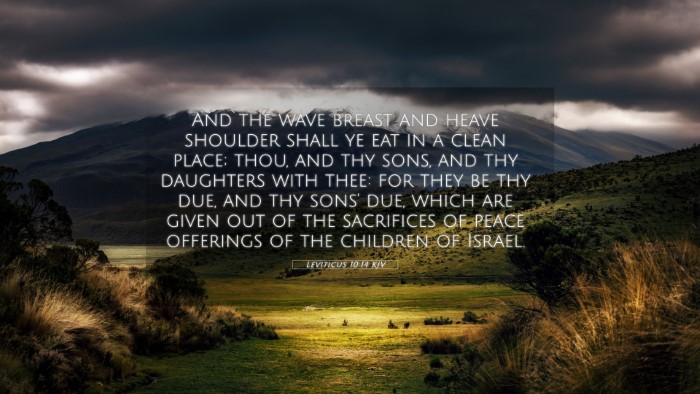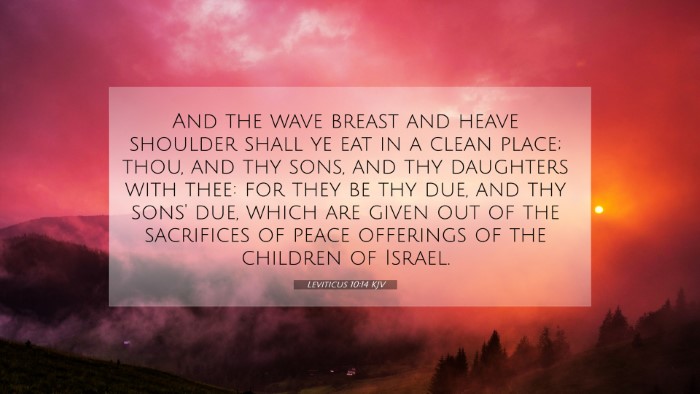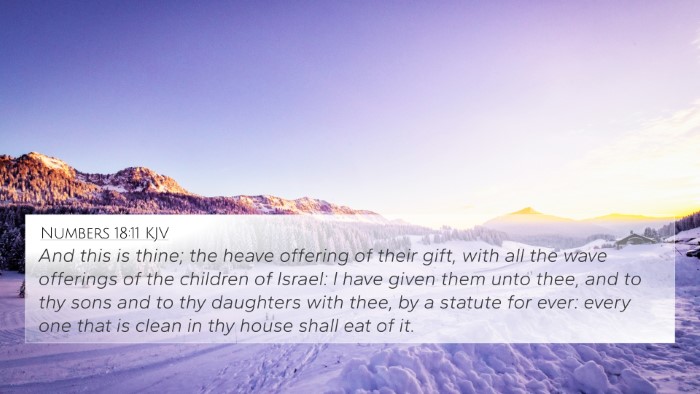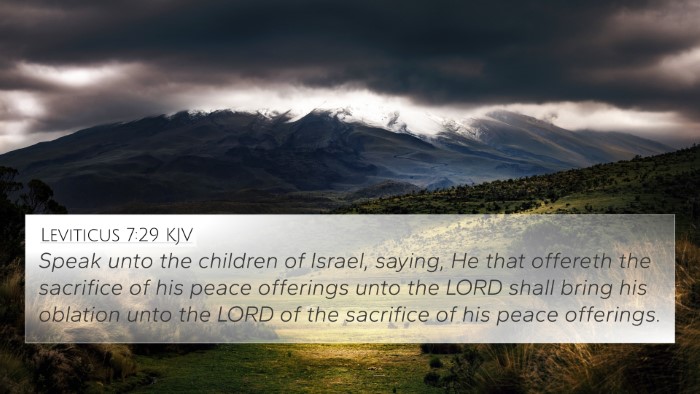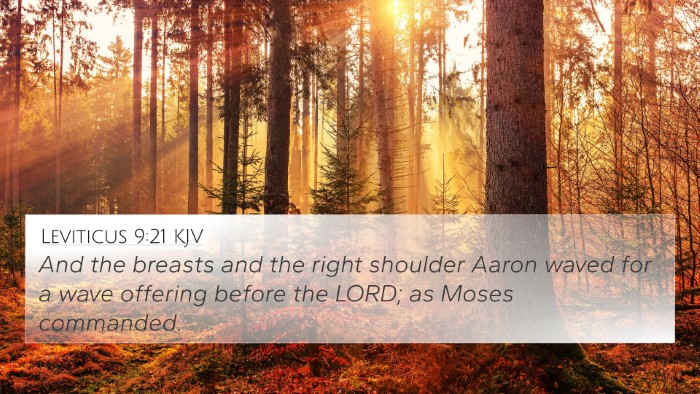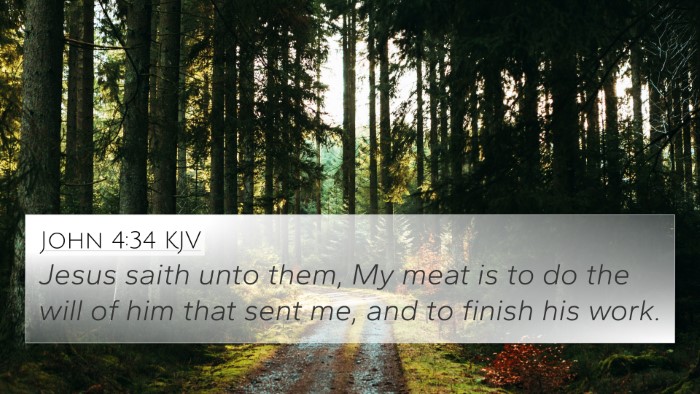Understanding Leviticus 10:14
Leviticus 10:14 reads: "But the wave breast and the heave shoulder shall ye eat in a clean place; thou, and thy sons, and thy daughters with thee: for they be thy due, and thy sons' due, which are given out of the sacrifices of peace offerings of the children of Israel."
Overview
This verse pertains to the dietary regulations and the rights of the priests and their families regarding certain offerings. It highlights the importance of eating in a clean place, reflecting both physical sanitation and spiritual purity.
Commentary Insights
Insights based on Matthew Henry, Albert Barnes, and Adam Clarke provide a rich tapestry of understanding regarding the implications of this verse.
1. Contextual Significance
- Henry notes that this regulation falls within the larger context of priestly duties and the specified offerings that were part of the sacrificial system established for the Israelites.
- Barnes emphasizes the familial aspect of the priesthood and how these offerings provided for the sustenance of the priests' household, thus ensuring the continuity of worship.
- Clarke highlights that the phrase "a clean place" signifies the necessity of holiness associated with the consumption of sacrifices, linking physical locations with spiritual statuses.
2. The Role of Sacrifices
The peace offerings mentioned in this verse represent a communal aspect of worship, in which both God and the people partake. These offerings are not just for atoning for sins, but also for expressing gratitude and fellowship with God.
3. The Importance of Cleanliness
- Cleanliness in worship reflects a heart aligned with God. As Matthew Henry illustrates, to eat in a clean place was a sign of reverence toward God’s sacred laws.
- Barnes adds that the location also signifies a communal aspect, where worshippers could partake in fellowship with God and one another.
- Clarke relates this command to broader themes of purity in the Jewish law, indicating that spiritual and physical cleanliness go hand in hand.
4. Family Involvement
This verse reveals that not only the priests, but also their families, were stakeholders in the sacrifices. It emphasizes the household’s role in worship, which was to be collective and inclusive.
Cross-References
Leviticus 10:14 connects with several other scripture passages, enhancing the understanding of its themes:
- Exodus 29:27-28 - Instructions on the sacred portion for priests.
- Leviticus 7:29-34 - Details about the peace offerings and the due for priests.
- Leviticus 11:44 - Emphasis on holiness and cleanliness in the lives of the Israelites.
- 1 Corinthians 10:21 - New Testament reflection on partaking in holy offerings.
- Hebrews 13:10 - Reference to the altar and the sacrifices of the New Covenant.
- Deuteronomy 12:17-18 - Guidelines for the consumption of certain offerings in a holy place.
- Numbers 18:8-11 - Description of the priests' share from the offerings made by the Israelites.
Conclusion
The study of Leviticus 10:14 allows for deep exploration into the linkage of worship, community, and the obligations of the priestly family within Israel. By examining this verse within the framework of Biblical theology and cross-referencing with other scriptures, one gains an understanding of the importance of purity and community in approaching God.
Thematic Connections and Interpretations
This verse exemplifies several thematic connections found throughout Scripture:
- Deliverance through sacrifice as seen in Exodus 12:27 with the Passover lamb.
- The communal aspect of worship in Acts 2:42-47 where believers shared meals and fellowship.
- The representative role of priests discussed in 1 Peter 2:9, where believers are called a royal priesthood.
- Understanding the importance of keeping sacred spaces in the body as discussed in 1 Corinthians 6:19-20.
Tools for Further Study
For those interested in exploring further, utilizing tools for Bible cross-referencing can provide integrated insights:
- Bible concordance can help locate verses related to specific themes.
- Bible reference resources can assist in understanding the larger context of cross-references.
- Cross-reference Bible study methods allow for systematic exploration of interrelated texts.
By comprehensively studying Leviticus 10:14 and its cross-references, believers can appreciate the depth of meaning contained within this verse and its application to one's life and worship practices.
